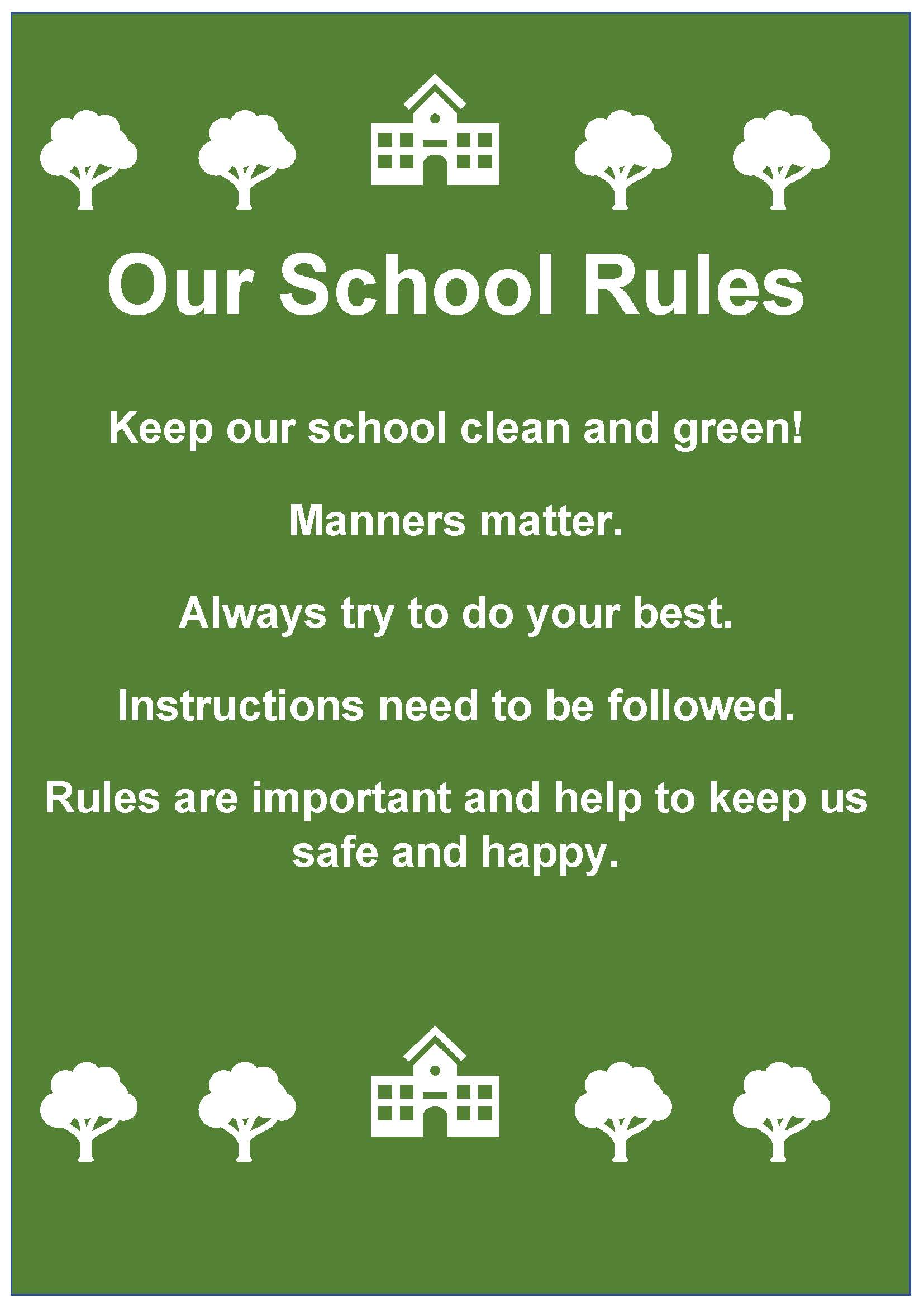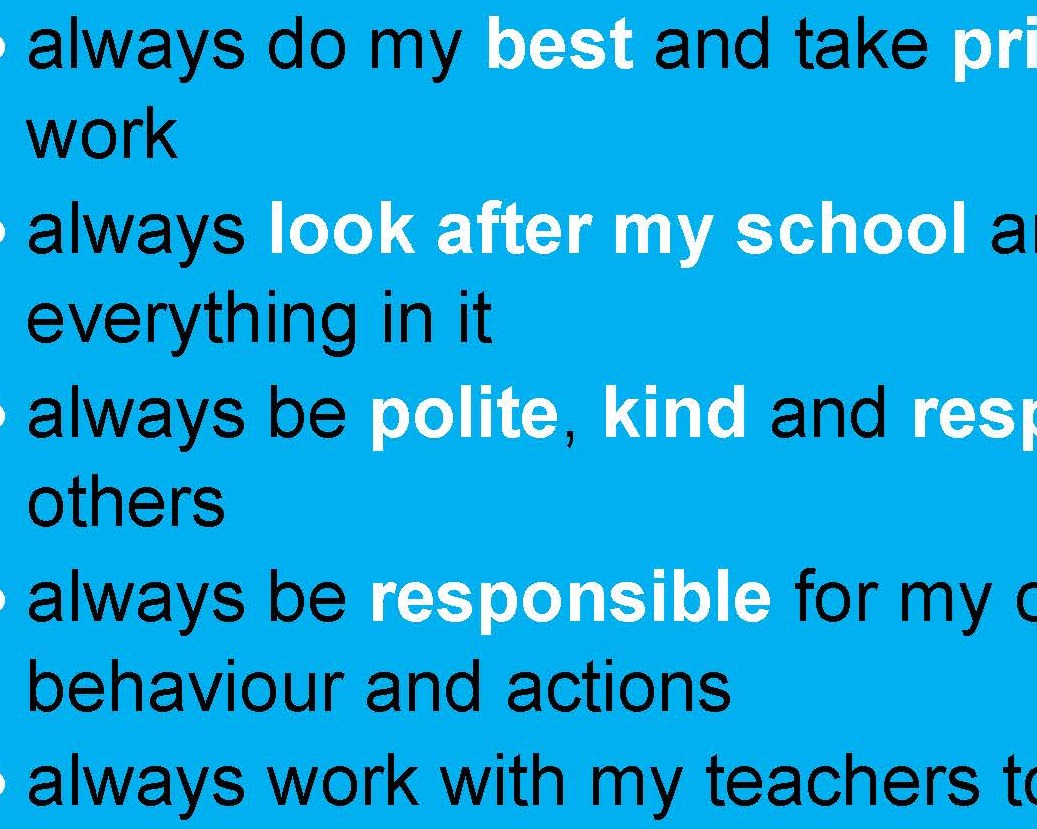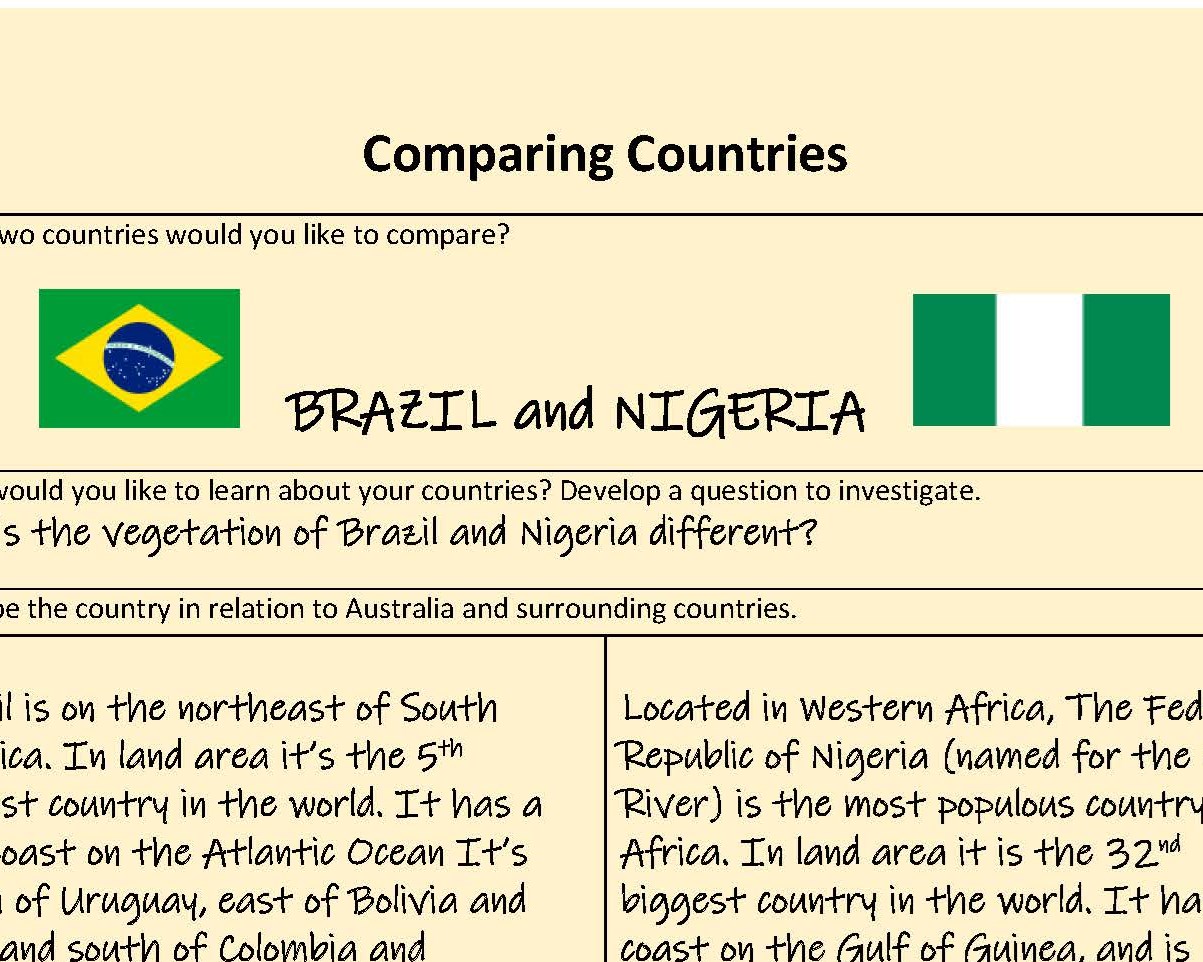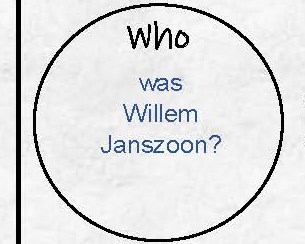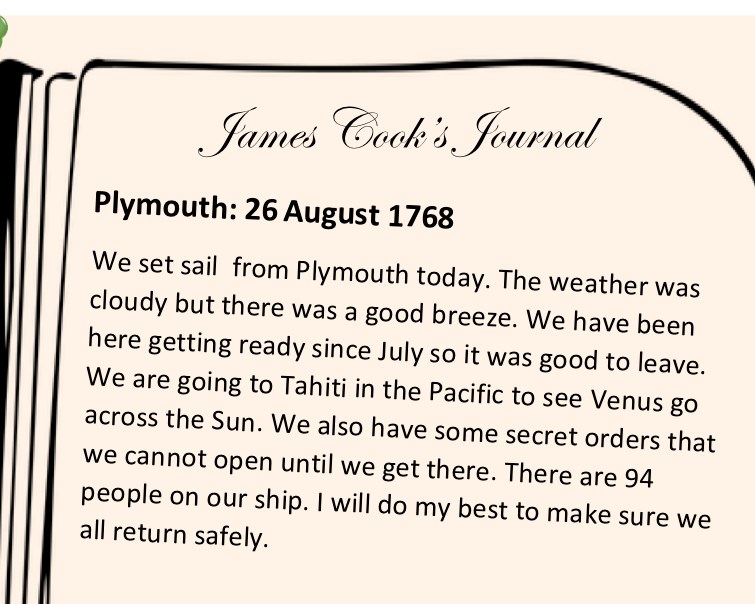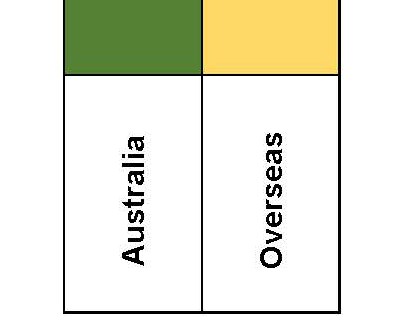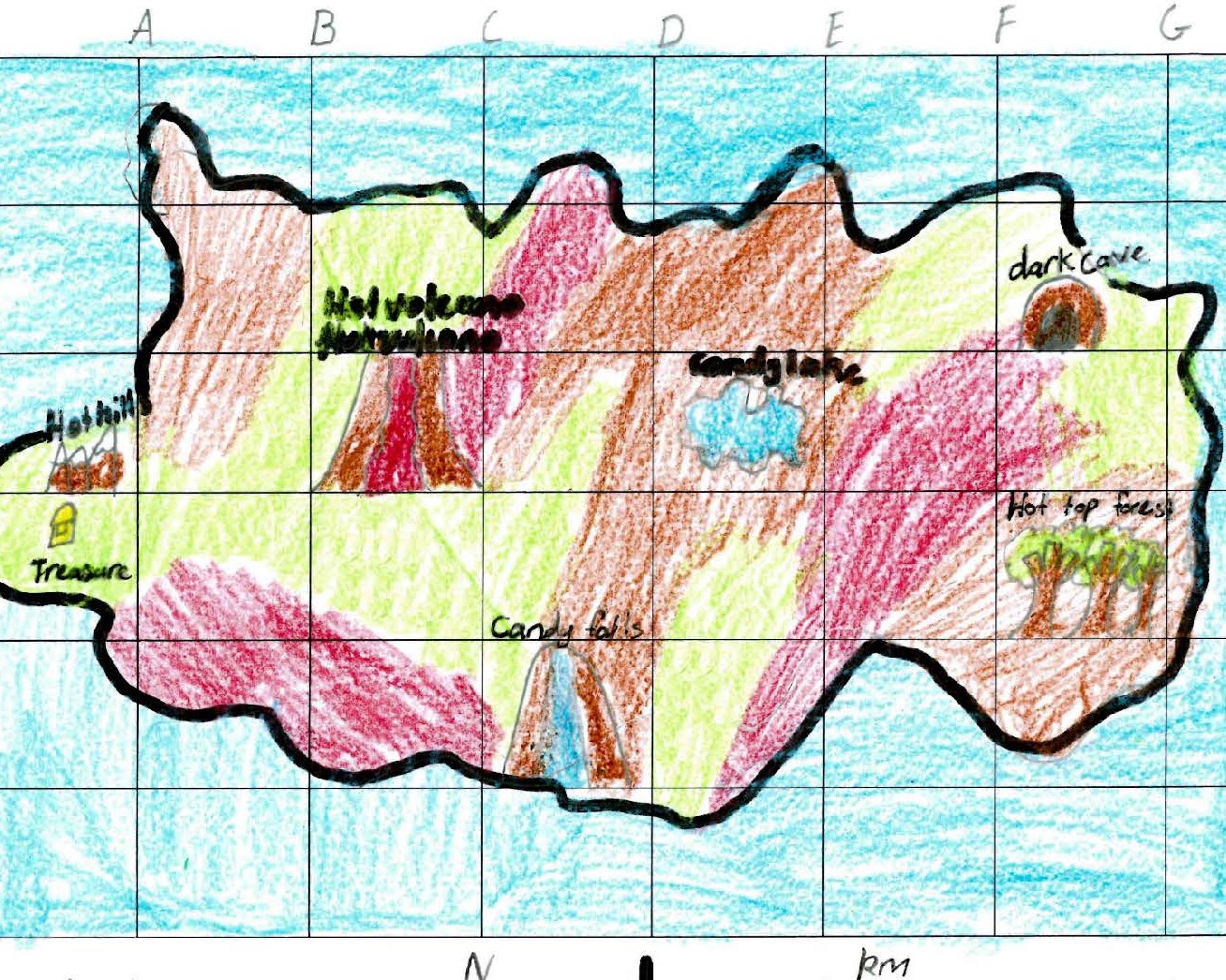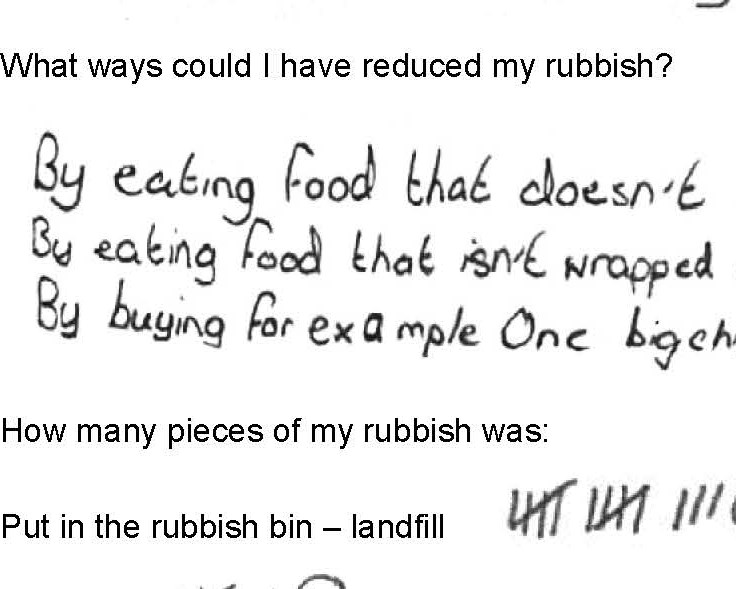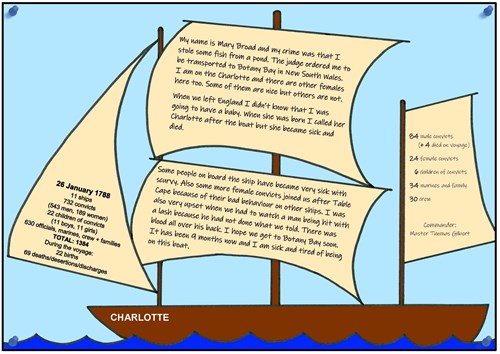Our school rules
Summary of task
Students explored the role and importance of rules for a community. They discussed how their school operated as a community and drafted their own set of rules for the school. Students produced posters of their rules for consideration by their school’s executive, parent organisation and student representative body. One example from these posters is presented as the work sample. The posters were presented at a school assembly, and printed and displayed around the school site. The sequence of classroom activities associated with the production of each student’s final poster took place over a three-week period at the start of a new school year.
Achievement standard
By the end of Year 4, students identify structures and decisions that support their local community and recognise the importance of laws in society. They describe factors that shape a person’s identity and sense of belonging.
Students develop questions about the society in which they live and locate and collect information from different sources to answer these questions. They examine information to distinguish between facts and opinions, identify points of view and to draw conclusions. They share their points of view, respecting the views of others, and identify the groups they belong to. Students present ideas and conclusions using discipline-specific terms in a range of communication forms.
